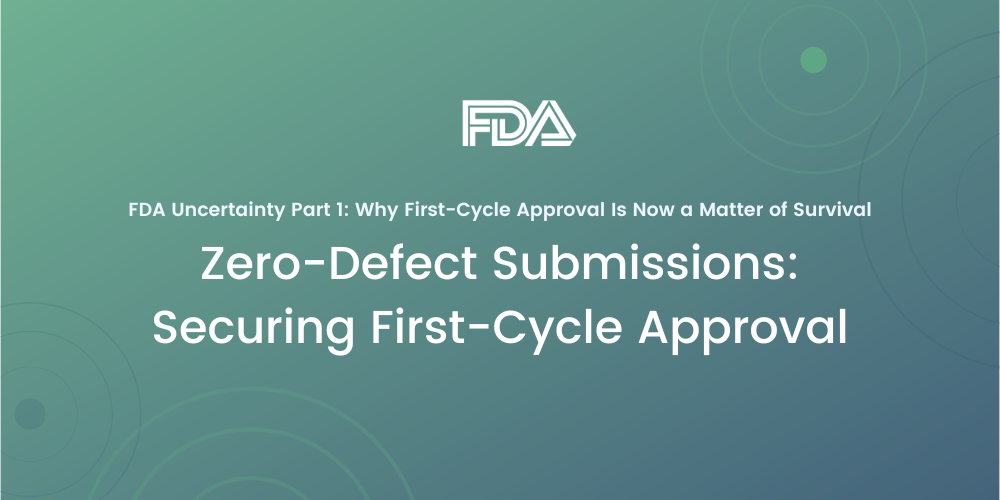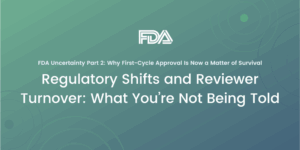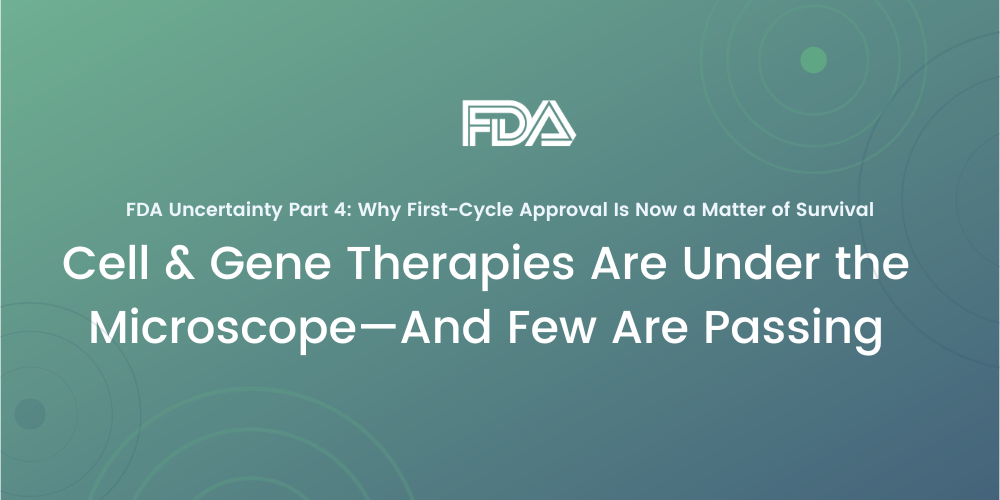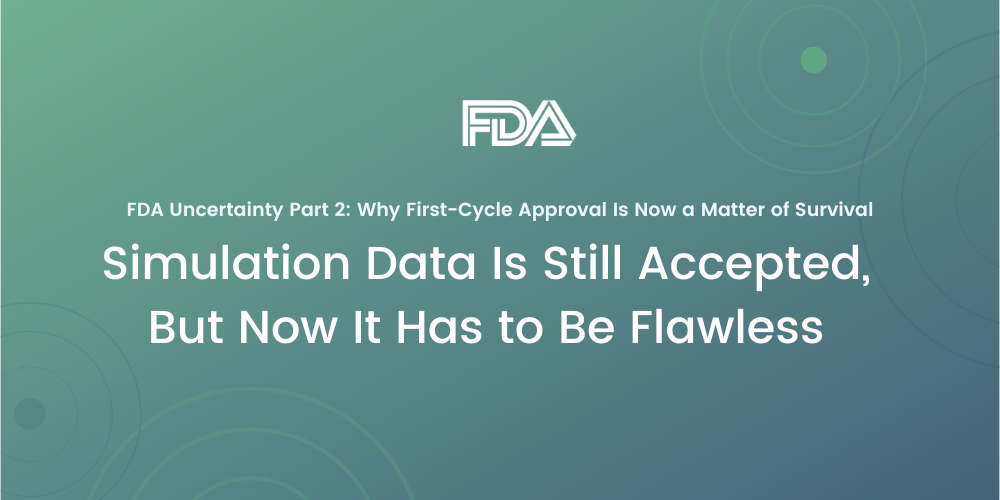Zero-Defect Submissions: Securing First-Cycle Approval
FDA Uncertainty: Why First-Cycle Approval Is Now a Matter of Survival Leadership shake-ups, budget...
read Details

FDA Uncertainty: Why First-Cycle Approval Is Now a Matter of Survival
Leadership shake-ups, budget cuts, and philosophical shifts inside the FDA have pushed the review process for biologics, advanced therapies, and any cold-chain-sensitive product into uncharted territory. Predictability is gone, reviewer experience is thinning, and the agency’s tolerance for ambiguity has dropped to near zero. In this six-part series we expose the new flashpoints that can sink a submission—and show you how to bullet-proof yours before it ever reaches the agency’s desk.
There’s a quiet storm brewing inside the U.S. Food and Drug Administration—and if you’re not paying attention, your submission may be swept away with it.
The agency is undergoing seismic changes. Philosophical realignments, increased procedural rigidity, and personnel turnover are reshaping how the FDA reviews therapies—especially those that depend on complex logistics or nontraditional delivery. What was once a collaborative review environment is now a defensive, risk-averse posture where even well-prepared sponsors are finding themselves blindsided.
As the regulatory environment evolves, some sponsors have observed a shift toward more conservative interpretations of guidance, particularly in emerging therapeutic areas. This can be attributed in part to internal policy updates and workforce transitions at the agency. Entire departments have been hollowed out due to retirements, reorganizations, and resignations. Many reviewers are now defaulting to stricter interpretations of guidance documents, lacking the institutional memory or confidence to grant flexibility. That means novel data or unclear validation logic won’t just be questioned—it may be rejected outright.
If your submission isn’t crystal clear—if your risk assessments aren’t tightly justified, your simulation data isn’t directly aligned to your routes, or your chain-of-custody documentation isn’t airtight—you could be dead on arrival.
Sponsors are asking:
These are no longer theoretical questions. They’re the tipping points that determine whether your application moves forward or grinds to a halt.
At Modality Solutions, we’ve seen these shifts up close. We’ve worked on submissions where reviewer turnover mid-review led to rejections of previously accepted data—simply because the new reviewer didn’t understand the logic. We’ve also helped sponsors avoid these pitfalls by preparing documentation that assumes the worst-case review scenario.
We prepare your dossier to survive scrutiny from the most rigid, least experienced reviewer in the building.
Here’s how:
Pro tip: Don’t write for the ideal reviewer. Write for the one who’s overworked, undertrained, and afraid to take a risk.
Because in today’s FDA, that may be the person deciding your future.
How Modality Solutions Can Help You
When reviewers change mid-stream, clarity is your only defense. We pre-write dossiers for the least experienced, most risk-averse reviewer in the building—cross-linking every claim to data, guidance, and global standards. The result: continuity that survives staff churn, eliminates re-work, and keeps your timeline intact.
Frequently Asked Questions:
Q: How has the FDA review process changed recently?
A: The environment has shifted from collaborative to defensive and risk-averse, with more conservative interpretations of guidance and less reviewer flexibility.
Q: What role does reviewer turnover play in submission outcomes?
A: Staff changes often result in reviewers without institutional memory, leading to rejections of previously accepted data simply because the new reviewer doesn’t understand the rationale.
Q: How can sponsors reduce the risk of misinterpretation?
A: Submissions should be structured for the least experienced, most risk-averse reviewer—linking every claim to data, guidance, and global standards.
FDA Uncertainty: Why First-Cycle Approval Is Now a Matter of Survival Leadership shake-ups, budget...
read Details
FDA Uncertainty: Why First-Cycle Approval Is Now a Matter of Survival Leadership shake-ups, budget...
read Details
FDA Uncertainty: Why First-Cycle Approval Is Now a Matter of Survival Leadership shake-ups, budget...
read Details